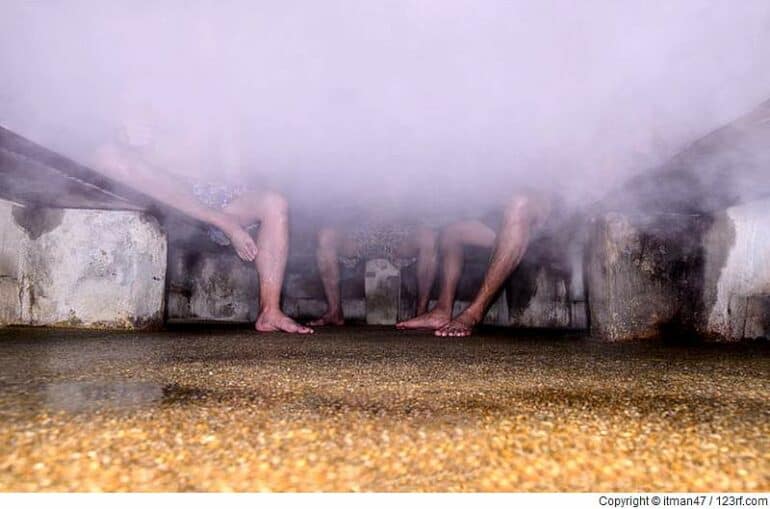The combination of alcohol and steam bath is not compatible
It is a common misconception that you can get rid of a hangover in a steam room, sauna or even a hot tub. Consuming large amounts of alcohol can negatively affect the body’s ability to maintain blood pressure. Due to alcohol intoxication and especially during the hangover phase, there is a risk of cardiac arrhythmia. Spending time in a steam room can further increase the risk of cardiac arrhythmias due to increased adrenergic activity. Being in a steam room during the hangover phase clearly poses health risks.
How long does alcohol stay in your body?
Once alcohol is in your bloodstream, it is transported to all of your body’s organs. In a healthy person, blood circulates through the body within 90 seconds, so alcohol can affect the brain and all other organs in a short amount of time. The impact of alcohol on the body varies from person to person. It depends on gender, body composition, the amount of alcohol consumed, the presence of food, and the liver’s ability to produce alcohol dehydrogenase enzymes¹.
In practice, the half-life of alcohol is four to five hours. The half-life indicates how long it takes your body to get rid of half of the alcohol. However, it takes the body about five half-lives to completely break down alcohol. Thus, it takes about 25 hours for the body to get rid of all the alcohol.
What about dehydration?
If you have a hangover, you are probably dehydrated. One of the main factors that theoretically contribute to a hangover is dehydration, which is caused by excessive consumption of alcoholic beverages. Going to the steam room to sweat out your hangover will only make the situation worse. It is not only the lack of fluids that causes problems, but also the loss of electrolytes.
Electrolytes are minerals in the body that are responsible for maintaining pH balance, fluid balance, and transporting nutrients to cells. Excessive alcohol consumption is known to cause electrolyte imbalances.
Can you “sober up” faster with coffee?
Once alcohol is in the bloodstream, it can only be eliminated through the enzyme alcohol dehydrogenase¹, sweat, urine and breath. Consuming coffee will not speed up this process. Nor will taking energy drinks or a cold shower sober you up any faster. It may make you feel more alert, but caffeine and cold showers do not remove alcohol from the blood.
What can you do about a hangover?
Eating an extended breakfast is one of the best-known antidotes to a hangover. Part of the reason is that a good breakfast can help maintain blood sugar levels. Too little sleep can also make a hangover worse. Getting enough sleep and allowing yourself to regenerate can help alleviate symptoms and make a hangover more bearable. Alcohol has a diuretic effect. This means that it increases urine production, resulting in a loss of fluids and electrolytes needed for normal function.
As a rule of thumb, when drinking alcohol, alternate between a glass of water and a beverage. While this will not necessarily prevent dehydration, it can help you moderate your alcohol intake. Other measures include taking certain dietary supplements. Moderate alcohol consumption and choosing drinks that are low in congeners can also help prevent hangovers in the first place.
Conclusion – Combination of alcohol and steam bath: a dangerous mixture
Combining alcohol and a steam bath can be dangerous. Alcohol consumption affects blood pressure and can lead to cardiac arrhythmias, especially during a hangover. Spending time in a steam bath further increases this risk. Therefore, it is better to avoid the steam bath during a hangover to avoid health problems.
Alcohol stays in the body for about 25 hours, and dehydration is a common problem during a hangover. A steam sauna increases dehydration and causes an imbalance of electrolytes in the body.
Coffee, energy drinks or cold showers do not speed up the breakdown of alcohol in the body. Eating a balanced breakfast, getting enough sleep and drinking alternative water can help alleviate a hangover. Moderate alcohol consumption and choosing drinks with low alcohol content also help prevent hangovers.

